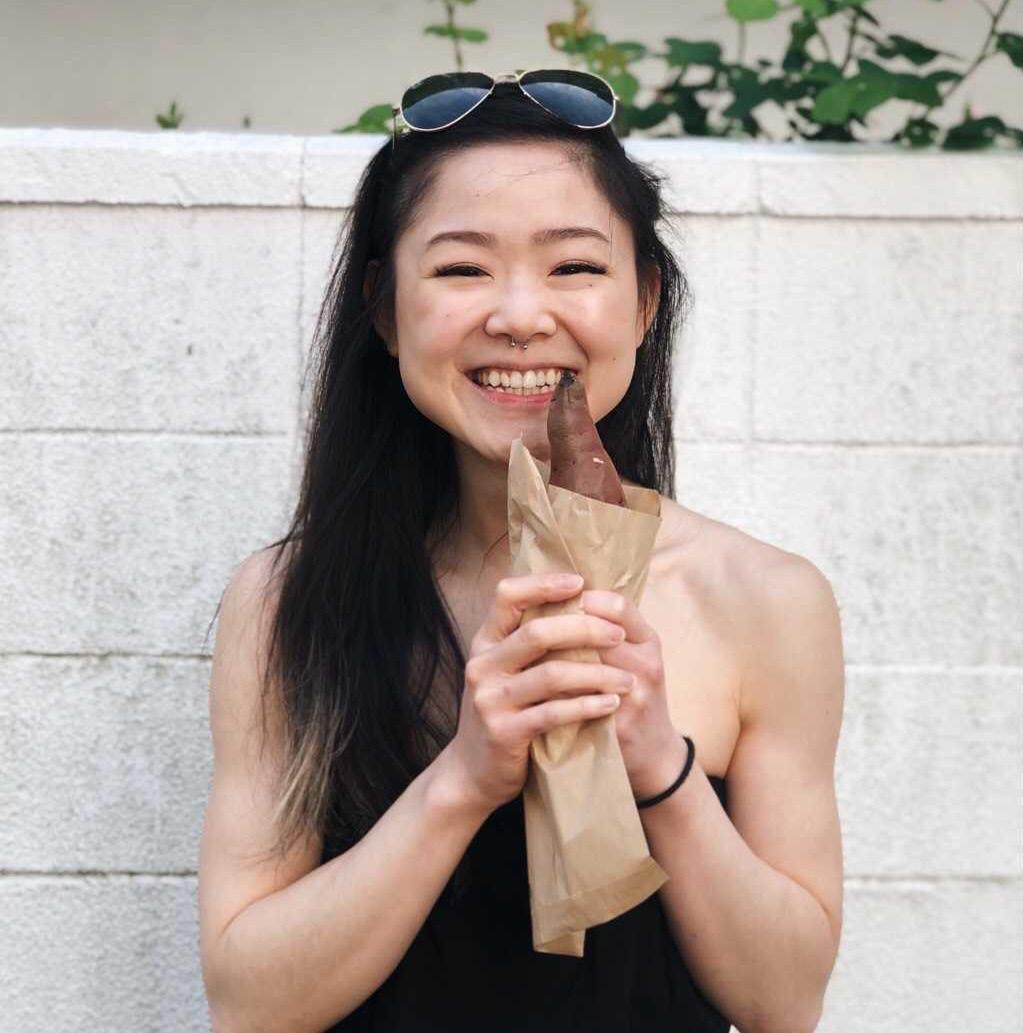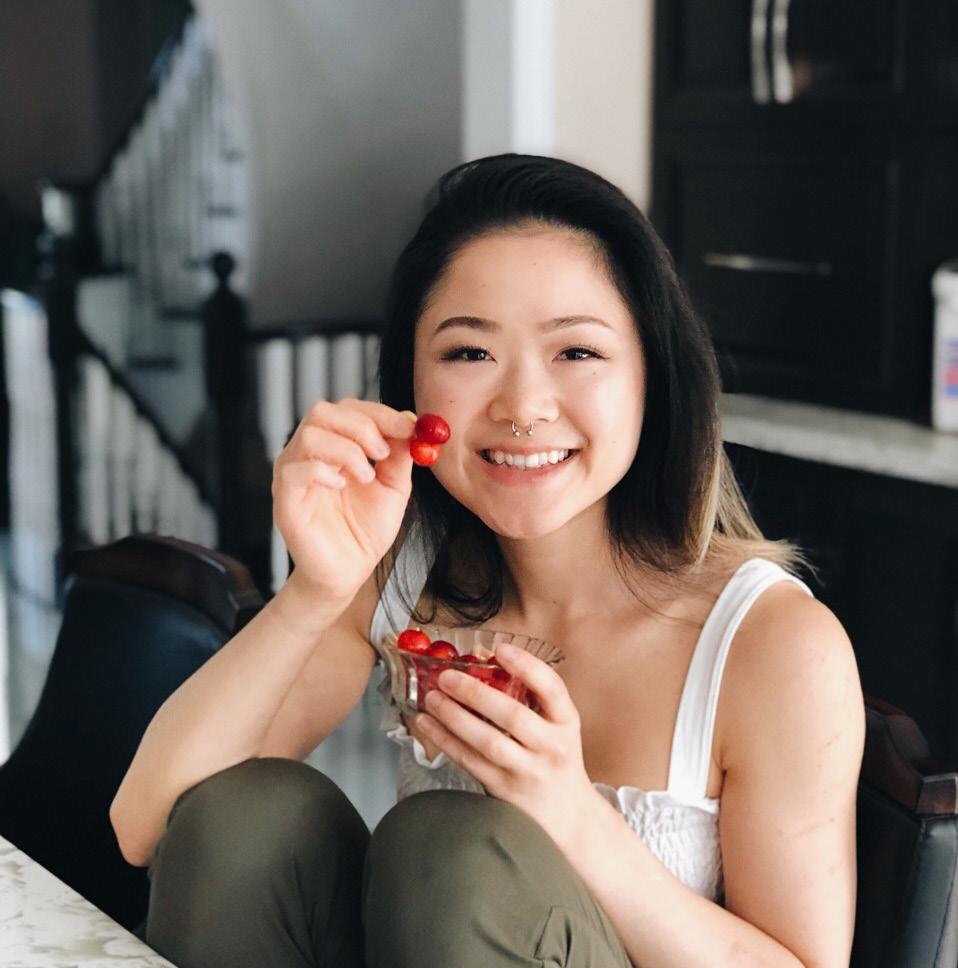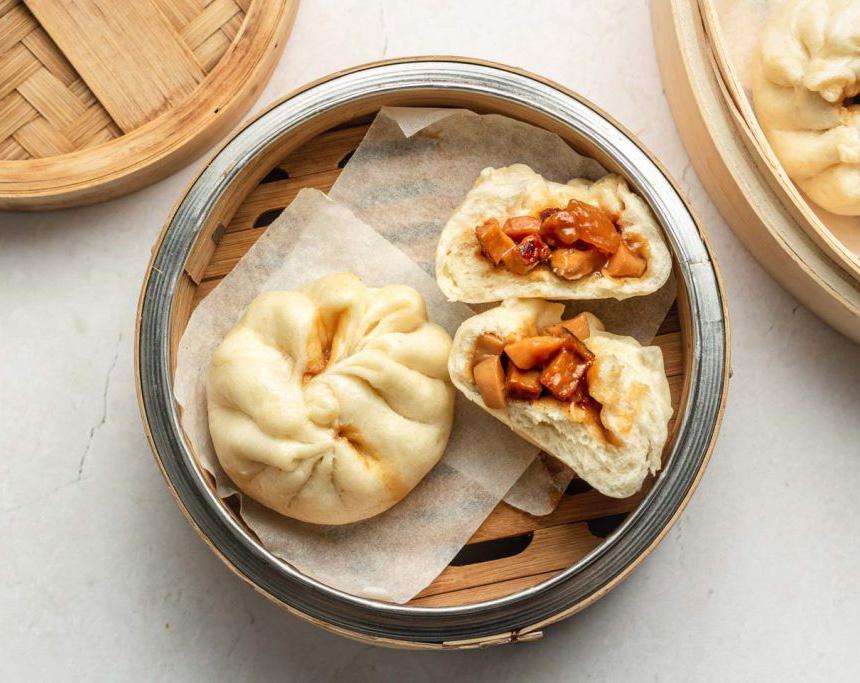
6 minute read
Interview with Lisa Kitahara
@okonomikitchen
Lisa is the voice, photographer and recipe developer behind Okonomi Kitchen, a plantbased food blog sharing simple feel-good recipes. She specializes in mostly East Asian-Inspired recipes but also loves to share western comfort classics (with lots of gluten-free options!). She hopes to share that transitioning into a plant based or vegan lifestyle doesn’t mean you have to give up your favorite food from your culture, it just takes a little time and love in the kitchen.
Advertisement
Why did you go vegan? How did going vegan affect both the cultural dishes you enjoy and how you share that food with other people?
I first went vegan when I was 16. It literally happened overnight after watching Earthlings. When I was younger, I didn’t eat that much meat anyways; my mom was Japanese, so we ate more fish. Fish was comfort food to me, especially because of the flavors my mom prepared it with. Even when you go to Japan, everything is cooked in fish broth. So giving that up was pretty hard at first. I couldn’t use dashi (fish-based) anymore and Japanese baking heavily relies on eggs. So when I first went vegan, I was mostly making easy, classic American comfort food. It was the first time I was cooking for myself, so that was a huge stepping stone on its own. But after a lot of trial and error, I learned how to make dashi vegan, and after that, it wasn’t as hard. As for how it affected other people...funny story: I hid that I was vegan from my parents for about 3 years.
How did you manage to hide that you were vegan for so long?
By the time I was in grade 11 or 12, my family didn’t eat together often because of everyone’s separate schedules. Whenever my mom brought me dinner I would put the meat back in the pot and since I was one of the first people to eat, she didn’t really notice. If I had the opportunity to go back in time, I definitely would have told them. When I eventually told my parents, they were against it, but I was in university and they knew they couldn’t change what I wanted to do. So I totally understand when people say they can’t go vegan because their family won’t let it happen. Meat and fish are a big part of Asian culture, so saying that you’re not going to eat meat may result in concerns about whether you’re getting enough protein. If your lifestyle is going to cause major arguments, slowly introducing veganism to your family through good vegan food is a good first step.
What do your parents think about your vegan lifestyle now?
My dad doesn’t care as long as I’m staying healthy. In the beginning, my mom would be critical about my food, especially because I was really into vegan and gluten-free baking and wasn’t great at it. For someone who is used to fluffy and delicate Japanese desserts, the vegan gluten free desserts are completely different. But now, my mom has tried my dishes and she really likes them! She’ll even send me a picture of a meal she sees on TV and tell me to make it vegan. Or she reminds me of something my grandma made and works with me to make it vegan. Sometimes when I’m preparing a recipe, I’ll call her and she walks me through it over the phone.
What inspired you to start your online platform?
I was the only vegan person in my town, which got lonely. I wanted to connect with other like-minded people, so I just made a new Instagram account to share my vegan food. Honestly, it was just for fun. I mostly posted smoothie bowls and comfort classics like pasta at the beginning. Eventually I started meeting other vegans!

So I remember you used to have another account (now @bylisakitahara), but then you switched to your current account (@okonomikitchen) because you wanted to share more cultural recipes. Could you talk more about what led to that switch?
When I was in university, I didn’t cook a lot of Japanese or Chinese food. I always knew Japanese cuisine was my favorite, but I was so wrapped up in what other people were sharing and posting that I felt obligated to share similar recipes. But once I came home from university and realized how much I missed my mom’s Japanese food, I knew people had to try this. I also started seeing more Asian people and food come up on my feed. And I noticed that whenever I shared Asian food in my stories but didn’t share a recipe, people would DM me asking how I made that. I mostly experimented with Japanese food, but with all the hate Chinese people were receiving because of COVID last year, that’s when my interest for Chinese food came out more. I started to reconnect with my grandma and asked her about Chinese recipes.
On my previous Instagram account, I realized people could be confused by what I was sharing, because I shared vegan and gluten free baking and American comfort food, but then all of a sudden I’d drop an Asian recipe. That’s totally fine, but I wanted a platform focused solely on Asian-inspired recipes so people knew what they were coming for. Right now my heart is in Asian-inspired recipes so people know that just because you go vegan, you can still enjoy the foods you grew up eating.
Have you ever felt like there was a stereotype for veganism? Did that stereotype ever affect what you chose to eat or share?
Oh yeah, 100%. When people at my university found out I was vegan, they often responded with “How are you vegan? You’re Asian.” I was shocked whenever anyone said that. I didn’t know you had to be a particular race to be vegan. The stereotype is that veganism is for white people and hippies. In the past couple years that has definitely improved, but it still exists, which is really interesting to me because a lot of vegan dishes come from Asian culture. Tofu is the perfect example.
What is your favorite cultural dish to veganize?
I’ll choose one Japanese and one Chinese. I think Japanese has to be either Japanese curry or karaage (vegan fried chicken). The curry wasn’t the hardest thing to veganize, but it was the best. For Chinese, it has to be the chao siu bao.

What advice would you give to someone who is interested in eating more plant-based but is afraid of losing the foods they grew up on or the sense of culture and community that comes from those foods?
First, don’t be afraid. If you think you’re never going to eat what you ate growing up, that isn’t a good mindset to start with. if you truly feel like you are missing out on cultural dishes, then experiment!
After multiple rounds of getting used to the ingredients, you naturally become better at cooking. If you really want to give veganism a chance, don’t give up after just one round of eating something gross. Give it at least a month. Today, it’s so much easier to go vegan because of all the amazing products coming out and continuing to improve.
Vegan Japanese Curry
www.okonomikitchen.com/vegan-japanese-curry/











